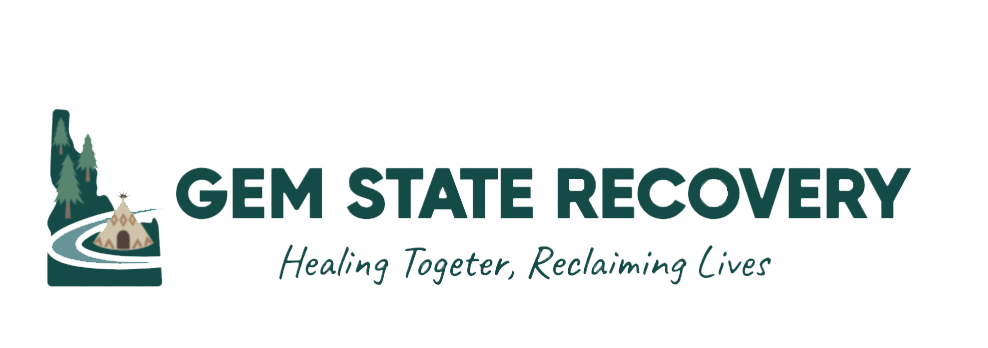
Exploring Rehab Centers in Boise Idaho
When it comes to finding the right pathway to recovery, the journey is as individual as the person walking it. At Gem State Recovery, we pride ourselves on offering a range of treatments that cater to the unique needs of each person who comes through our doors. Our approach to combating substance use, mental health, and process addictions is rooted in compassion, expertise, and a deep understanding of the challenges faced by those we serve.
Personalized Treatment Plans
The cornerstone of effective recovery is a treatment plan that addresses the person, not just the problem. At Gem State Recovery, every individual is assessed to ensure their treatment plan is tailored to their specific needs. Our collaborations with nationally accredited providers assure a high standard of care, incorporating various therapeutic modalities such as Cognitive Behavioral Therapy (CBT), Dialectical Behavioral Therapy (DBT), and Eye Movement Desensitization and Reprocessing (EMDR), among others.
A Holistic Approach to Recovery
We believe in treating the whole person, which is why our program includes not just clinical services but also mentoring, life skills training, and family support. Recovery is not just about overcoming substance use; it’s about rebuilding lives, relationships, and self-esteem.
A Range of Services
- Addiction Intervention
- Detox Programs
- Residential Treatment
- Partial Hospitalization
- Intensive Outpatient Programs
- Inpatient Programs
- Outpatient Programs
- Alumni Programs
- Relapse Prevention
- Case Management
- Transitional Living
Support Beyond Treatment
The journey of recovery extends far beyond the walls of our facilities. We offer alumni programs and transitional living arrangements to provide a supportive community for those in recovery. It’s our way of ensuring that the path to wellness is accompanied by a network of support, reducing the risk of relapse and fostering long-term sobriety.
Breaking the Stigma
Part of our mission at Gem State Recovery is to break the stigma surrounding addiction and mental health. By sharing stories of hope and recovery, we aim to change perceptions and encourage more people to seek help.
Addressing the Root Causes
Understanding that addiction often stems from deeper mental health issues, we delve into the underlying causes of substance abuse. Our comprehensive evaluation process ensures that each treatment plan not only addresses the symptoms of addiction but also the root causes, promoting holistic healing and sustainable recovery.
Experiential Therapy
Recovery is not just about talking; it’s about experiencing. Our experiential therapy sessions, including activities like art therapy, equine-assisted therapy, and outdoor adventures, are designed to help clients explore emotions and challenges in a supportive environment, promoting healing through action and engagement.
Emphasizing Family Involvement
The impact of addiction on families cannot be overstated. That’s why family support and therapy are integral parts of our program. Healing relationships and building a strong support network are crucial for long-term recovery. Our family support services offer loved ones the tools and understanding needed to navigate the complexities of addiction and recovery together.
Commitment to Excellence
At Gem State Recovery, our commitment extends beyond our clinical services. It’s about creating a safe, welcoming environment where individuals can find hope, healing, and a path to a brighter future. Our dedication to excellence is reflected in everything we do, from our evidence-based therapies to our compassionate staff.
Choosing among rehab centers in Boise Idaho can be a daunting task, but it’s also the first step towards reclaiming your life. With Gem State Recovery, you’re not just finding a treatment center; you’re discovering a community committed to your recovery. For those seeking help, remember, you’re not alone. We’re here to guide you through every step of your journey towards wellness.

What are common misconceptions about rehab?
One common misconception is that rehab is a one-size-fits-all solution. In reality, effective rehab must be tailored to the individual’s unique needs, incorporating various treatment modalities. Another myth is that entering rehab is a sign of weakness when, in fact, it requires immense strength and courage to confront and overcome addiction. Additionally, some believe rehab is only for celebrities or the wealthy, but there are numerous options available to fit various budgets and needs.
How important are personalized treatment plans in rehab?
Personalized treatment plans are crucial for effective rehabilitation. They ensure that the treatment addresses the individual’s specific issues, challenges, and goals. A plan might incorporate diverse therapies such as CBT, DBT, or EMDR, depending on the person’s needs. This tailored approach enhances engagement in the recovery process and improves outcomes by addressing the root causes of addiction and mental health challenges in a comprehensive manner.
Can you explain the benefits of a holistic approach to recovery?
A holistic approach to recovery focuses on treating the whole person, not just the addiction. This means considering physical, emotional, mental, and spiritual health. Benefits include improved self-awareness, healthier coping mechanisms, and a stronger sense of overall well-being. Activities like experiential therapy, life skills training, and family support play vital roles in this approach, aiding in rebuilding lives and fostering sustainable recovery.
Why is family involvement crucial in the recovery process?
Family involvement is essential because addiction affects not just the individual but also their loved ones. Engaging families in the recovery process helps heal relationships and establishes a supportive network crucial for long-term sobriety. Through family therapy, loved ones gain insights into the patterns of addiction and learn how to effectively support the recovery journey, creating a foundation of mutual respect and understanding.
What are some challenges individuals might face in overcoming addiction and how are they addressed?
Overcoming addiction is fraught with challenges, including dealing with withdrawal symptoms, confronting underlying mental health issues, and breaking free from old behaviors and environments that perpetuate substance use. Addressing these challenges requires a comprehensive approach that includes medical detox, mental health treatment, behavioral therapies, and continuous support, such as alumni and relapse prevention programs. Creating a personalized treatment plan that evolves over time is key to navigating and overcoming these obstacles successfully.
How does breaking the stigma around addiction help those in recovery?
Breaking the stigma around addiction encourages more people to seek help and fosters a society that supports recovery. When individuals no longer feel judged, they are more likely to open up about their struggles and pursue treatment. Sharing stories of hope and recovery can change perceptions, proving that addiction is not a moral failing but a complex condition that requires compassion and comprehensive care.
What are the benefits of experiential therapy in addiction treatment?
Experiential therapy offers unique benefits by allowing individuals to explore and express their emotions through actions, rather than traditional talk therapy alone. Activities like art therapy or equine-assisted therapy provide alternative avenues for individuals to confront issues, improve self-esteem, and learn coping strategies. This hands-on approach can be particularly beneficial for those who struggle to articulate their feelings, offering them a safe and supportive environment to heal and grow.
How does transitioning to normal life after rehab work, and what support is available?
Transitioning to “normal” life after rehab can be challenging as individuals navigate new routines and relationships without substance use. Support systems, including transitional living arrangements and alumni programs, play a critical role in this phase. These services offer continued guidance, a sense of community, and resources to manage stress and potential triggers. Long-term success is often achieved by combining these supports with ongoing personal development and self-care practices.
What should someone consider when choosing a rehab center?
Choosing a rehab center is a highly personal decision. It’s important to consider factors such as the types of treatment modalities offered, the qualifications of the staff, the facility’s approach to recovery (e.g., holistic vs. traditional), and the level of family involvement encouraged. Additionally, practical considerations like location, cost, and insurance coverage play significant roles. Visiting or contacting the facility to ask questions and get a feel for their philosophy and environment can also guide this important choice.
Rehab Resources
- Substance Abuse and Mental Health Services Administration (SAMHSA) – SAMHSA’s National Helpline offers 24/7, 365-day-a-year treatment referral and information service for individuals and families facing mental health and/or substance use disorders.
- National Institute on Drug Abuse (NIDA) – Resources for Treatment – NIDA provides research-based resources and information on drug addiction treatment, including publications and guides for individuals seeking help.
- National Alliance on Mental Illness (NAMI) – NAMI offers support, education, and advocacy for individuals and families affected by mental health conditions, providing resources to help navigate mental health treatment options.
- DrugRehab.org – Steps to Find the Best Rehab Center – DrugRehab.org provides guidance on choosing the best rehab center in your area, offering steps and considerations for finding the most suitable treatment facility.
- Centers for Disease Control and Prevention (CDC) – Alcohol Use and Your Health – The CDC’s fact sheet on alcohol use provides valuable information on the impact of alcohol on health and resources for individuals seeking help with alcohol-related issues.




